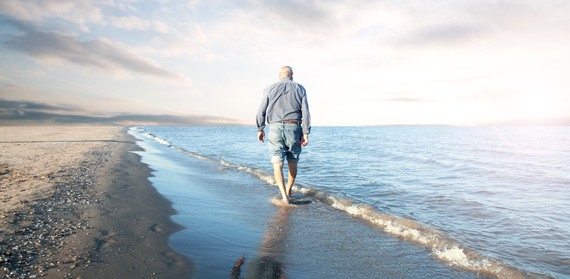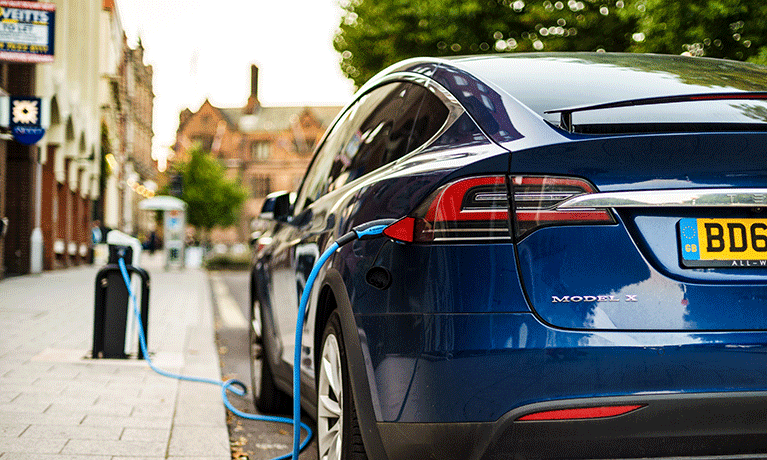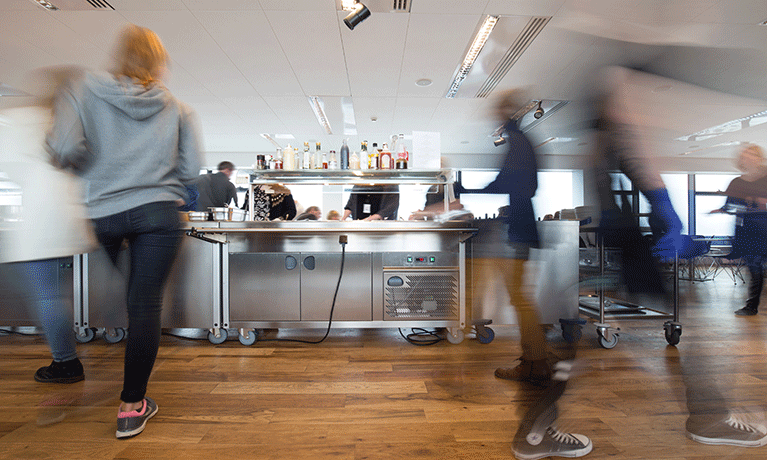Ian wears many hats, metaphorically speaking. He describes himself as a poet and a music producer. He is a Macmillan volunteer, but also a patient; he was diagnosed with an aggressive cancer in 2013, by which time it was inoperable and technically incurable.
Honest and influential
Undergoing regular injections and radiotherapy, Ian enrolled on the iHOPE course at this local Macmillan Centre and online too, knowing immediately that he wanted to be involved in their delivery so he got himself trained. He has coached the course on-line and also facilitated what we call ‘face to face’ group sessions. Here, he shares more;
I was diagnosed with locally advanced prostate cancer in early 2013, after half a year of being in denial (my GP not me.) My condition is incurable, inoperable and of the most aggressive sort. But I’m not dead yet, and my consultant says he can keep men going until they are a good deal older than I am. It remains to be seen whether he can continue to work the trick for me. I’ve had radiotherapy as part of a clinical trial at which I think I was found Guilty as Charged.
The recommended on-going treatment is with hormones, which reduce a lot of the cancer’s activity. My cancer thrives on the male hormone testosterone, which has to be eliminated from the body. By-products of the treatment are reduction in muscle mass, and a tendency to put weight on around the tummy and pectoral region. Man-boobs are a bit of a risk. It is harder to lose weight, and working out at the gym is not a great idea, as pumping iron tends to generate testosterone. A pal of mine (now dead) found this out to his cost. But walking is good exercise and so is swimming. I’ve been playing something called ‘walking football’ which is amazing. I recommend it to old and young people alike.
Although sex is possible, it is no longer a primal urge. Although I eat well, I now have to be really careful about the calories and the dangers that the most attractive foods contain, and my bladder (affected by it all) won’t let me have caffeine.
After a flurry of tests, scans, radiotherapy and consultations, I looked round for something to deal with the inside of my head, if you know what I mean. Another good pal (now dead) told me that everyone wanted to know how his bones, his bladder, his joints, his glands felt but nobody ever said how do YOU feel? A volunteer at the Macmillan Centre held his hand while talking to him and he burst into tears. It seems that what he needed was the reaching out to others to ask or offer support. The HOPE/Macmillan course that I have been trained to facilitate does that, as well as providing self-help management, in a programme which lasts six sessions.
A group of cancer sufferers meet once a week for a few hours and go through the HOPE course. Every topic is relevant. Every issue is shared. Some of these people continue to meet on a regular basis, go to each other’s houses for lunch. Go to each other’s funerals.
Some course members themselves become trained as facilitators. I’ve taken part in eight such courses, and I get a lot of invites out. Some of these include alcohol, but most are just genuine good company and a lot of laughs, people living for the moment. A wise man once said “Life is what happens while you’re making plans for the future,” and it is true.
The future and the past
Ian believes that the future and the past are merely theoretical constructs in which we hold our hopes, dreams and memories. Nothing happens ‘in the future’ – for everything that happens, when it happens it is always ‘Now.’ Nevertheless, people do make plans, set goals, book holidays and dream dreams. Just don’t ever decide to live there, Ian says, or in the past, for if you try to carry around with you all the things you no longer use then you risk missing out on what living in the present has to offer you.
Find out more about the iHOPE project.




Comments are disabled